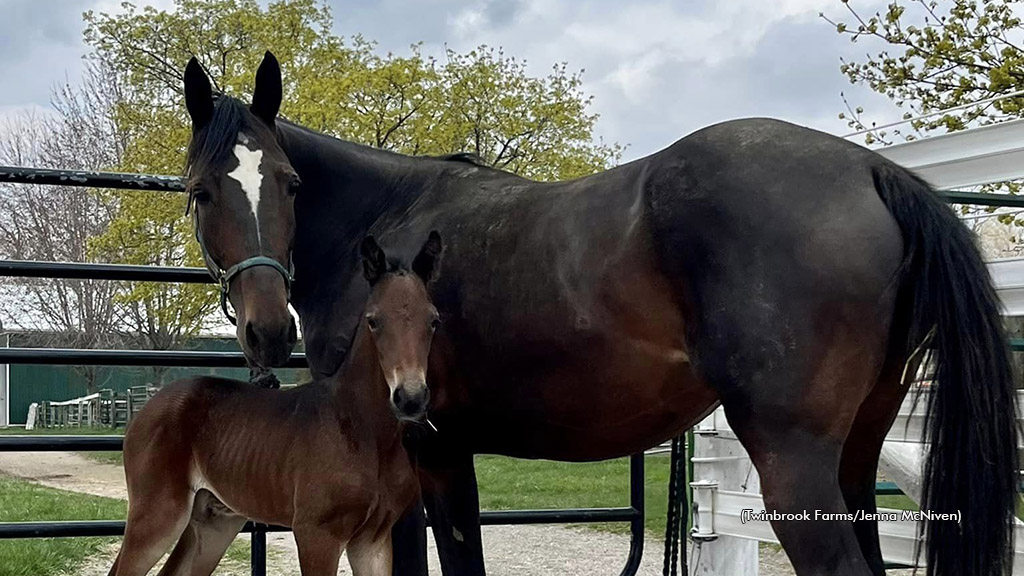
In honour of Mother’s Day, Ontario Racing spoke with prominent Standardbred breeder Tammy McNiven to discuss the life of a broodmare and their importance in the racing business.
McNiven and her husband Rob operate Twinbrook Farms. The Embro, Ont., farm has nearly 100 horses on 130 acres of land and is perennially among the leading breeders in the Ontario Sires Stakes.
Ontario Racing (OR): Tammy, thank you for taking the time to chat with us today. The first question we have is what happens when a mare begins its career as a broodmare?
Tammy McNiven (TM): The transition to being a mom is fairly simple. They come to the breeding farm and get their shoes taken off if they have been in training or racing, and they go into retirement.
Once the breeding process takes effect and you get a viable pregnancy, they get into a group of friends. At our farm, it’s four or five friends, and they get turned out in nice big lush green fields.
They’re turned out until about November in the year they are inseminated. Then they come into what I call the ‘country club,’ where they get into a barn with a ‘condo’ every night, each with their own stall. Then we wait and anticipate for their baby to be born.
OR: Once the baby is born, what does the mare do to begin caring for its foal?
TM: Ninety-nine per cent of the time the mothering instinct begins right from the get-go. As soon as the mare is up and sees the foal, she will start licking and cleaning the foal and bonding. It’s the most beautiful thing to see when they bond. From that moment forward, the mother is teaching the foal how to be a horse.
The mother will teach it how to eat grain, how to be clean in the stall, how to stay away from friends in the field in case they aren’t that nice. Foals really take on the disposition of their moms and you can really see it when they become yearlings. They are a lot like their moms because they have been taught everything by the mom.
OR: You mentioned that a mare can pass on its disposition to a foal. What kind of behaviours and traits can a mare pass on to its babies?
TM: A good mare will teach them to be fighters and have a heart. They will teach them to try and to not back down from others. They don’t want to teach the foal to be the last one in from the field when everyone is coming in all at once, or be the last one to eat when it’s feeding time. They want them up in the tougher ranks of the herd. Also, happy mares will produce happy foals. You can tell when a horse is happy.
OR: It really is amazing to see mother nature at work. When it comes to selecting broodmares for the Twinbrook band, what do you look for?
TM: First and foremost, it is the pedigree for us. Nowadays I feel that you have to have a top pedigree with some big names in it. That really does reflect in the foals. The better pedigrees produce better yearlings and better racehorses.
OR: Tammy thank you for taking the time to chat with us today. Is there anything else you’d like to share about mares and getting to see mother nature in action out at your farm?
TM: It is really remarkable with mother nature and how the process works. Once the mare foals and they know it is their baby, the bonding time is unbelievable. When you turn mares and foals outside in groups, some mares let their babies go wherever, but other mares want their foal right next to them. It’s all in their personalities and it is really cool to see.
*Editor’s Note: This conversation has been edited for clarity and length.
(Ontario Racing)

